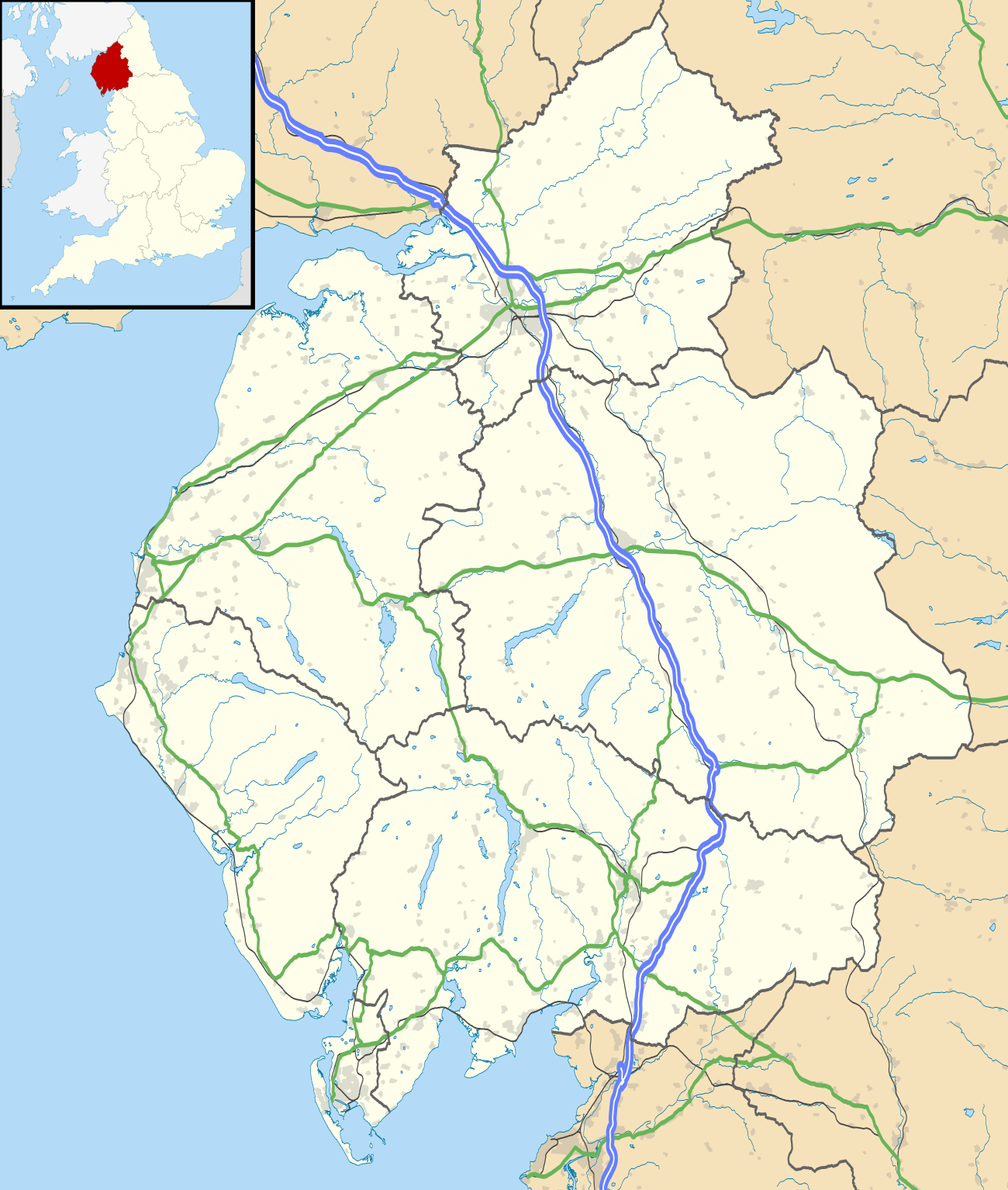Eaglesfield, Cumbria
| Eaglesfield | |
|---|---|
 Village green, Eaglesfield | |
 Eaglesfield Eaglesfield shown within Cumbria | |
| OS grid reference | NY094281 |
| Civil parish | |
| District | |
| Shire county | |
| Region | |
| Country | England |
| Sovereign state | United Kingdom |
| Post town | COCKERMOUTH |
| Postcode district | CA13 |
| Dialling code | 01900 |
| Police | Cumbria |
| Fire | Cumbria |
| Ambulance | North West |
| EU Parliament | North West England |
| UK Parliament | |
Eaglesfield is a small settlement in the county of Cumbria, in England. Historically part of Cumberland, it is near the A5086 road and is 2.5 miles (4 km) southwest of the town of Cockermouth.
Etymology
Eaglesfield lay in the early Middle Ages within the British kingdom of Rheged, and the first element of the name is perhaps derived from the Brythonic 'eccles' "church" (cognate with Welsh 'eglwys' 'church'). The meaning would be 'open land near a British church' - something that the Anglian settlers would have seen as they "arrived and settled some two miles away down below at Brigham." [1] (The second element, 'Feld', is Old English for 'open country').
Alternatively, it means 'Ecgel's open land' ('Ecgel's feld'). 'Ecgel' is a personal name and possibly "a normal diminutive of compound names such as 'Ecglaf', or Ecgwulf' ".[2]
Notable people
Eaglesfield was the birthplace of John Dalton (1766–1844), acclaimed chemist, meteorologist and physicist. He was the father of the modern atomic theory.
Eaglesfield was the probable birthplace of Robert de Eglesfield (c.1295–1349), founder of the Queen's College, Oxford. His father, John of Eglesfield, held lands in and near there.
Moorland Close, Eaglesfield, was the birthplace of Fletcher Christian, master's mate aboard the HMS Bounty. He led the mutiny against the captain, William Bligh, during their voyage to Tahiti.
.jpg) Historical plaque marking birthplace of John Dalton
Historical plaque marking birthplace of John Dalton.jpg) Modern plaque marking birthplace of John Dalton
Modern plaque marking birthplace of John Dalton
See also
References
| Wikimedia Commons has media related to Eaglesfield, Cumbria. |
- ↑ Wilson, P. A. (1978). "Eaglesfield". Transactions of the Cumberland and Westmorland Antiquarian and Archaeological Society. 2. LXXVIII: 47–54, p.47–48.
- ↑ Armstrong, A. M.; Mawer, A.; Stenton, F. M.; Dickins, B. (1950). The Place-names of Cumberland. English Place-Name Society, vol. xxi. Part 2. Cambridge: Cambridge University Press. p. 378.
External links
- Cumbria County History Trust: Eaglesfield (nb: provisional research only - see Talk page)
- Eaglesfield at Streetmap.co.uk